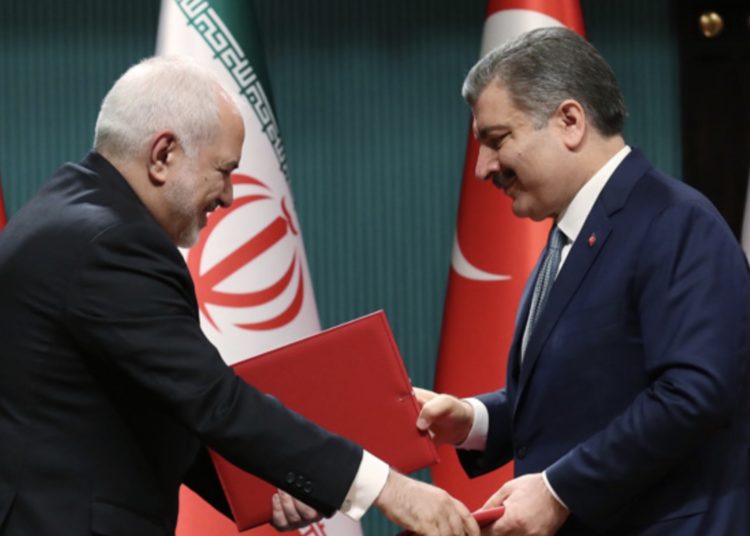A recent deal in the fields of health and medical sciences between Turkey and Iran has raised concerns that the mullah regime plans to circumvent restrictions on dual use medical materials and technology to bypass UN and US sanctions on Iran.
The agreement, a copy of which was obtained by Nordic Monitor, acquired the force of law after it was signed on April 18, 2019 by Turkish President Recep Tayyip Erdoğan, a pro-Iranian leader who vowed to defy US sanctions and pledged to thwart their effectiveness in cooperation with the Iranian regime.
According to the agreement, titled “Memorandum of Understanding on Cooperation in the Fields of Health and Medical Sciences between the Government of the Republic of Turkey and the Government of the Islamic Republic of Iran,” the countries agreed to “develop and expand cooperation in the fields of health and medical sciences.” The two countries will work on health sciences and health research and cooperate in the fields of medicine, pharmacy and medical devices. They also committed to improving the capacity of human resources in the field of health and exchange medical personnel for short-term courses.

Article 3 of the MoU provides the framework for developing joint projects, the exchange of experts, information and experiences and encourages the participation of specialists on either side in meetings organized by both countries. Turkey and Iran will establish a joint working committee to determine and evaluate details of areas of cooperation and will devise an action plan to flesh out the provisions of the agreement, according to Article 4. A follow-up procedure is planned with annual meetings to review the progress in concrete areas of cooperation.
The eight-article agreement will be valid for three years with automatic one-year renewals. The previous agreements on health between the two countries will be terminated and replaced by this MoU, according to the deal, which was signed on December 20, 2018 by Mohammad Javad Zarif, Iran’s foreign minister, and Turkish Health Minister Fahrettin Koca.

Iran has been under both UN and US unilateral sanctions for decades over Tehran’s controversial plans to build nuclear weapons in violation of its international commitments. Economic, trade and financial sanctions have taken a toll on Iran. Yet concerns over the mullah regime’s alleged ambitions to weaponize medical research, especially in the field of nuclear medicine, remain valid as of today.

Although medicines are not included in the list of sanctions, dual use articles and technologies present a particular problem when it comes to enforcing sanctions and insuring that Iran is using the imported materials for their intended purposes and not diverting them for weapons research.
The Erdoğan government’s track record on Iran sanctions has been problematic, with many Turkish firms sanctioned and designated by the US government for violating the sanctions. Corruption investigations in 2013 that exposed a major network for bypassing the sanctions regime through Turkey incriminated President Erdoğan and his business and political associates. Therefore, the recent agreement in health cooperation, appearing innocent at face value, has stoked fears that it may provide a framework for the Turkish government and affiliated entities to operate schemes that may violate the US and UN sanctions.












